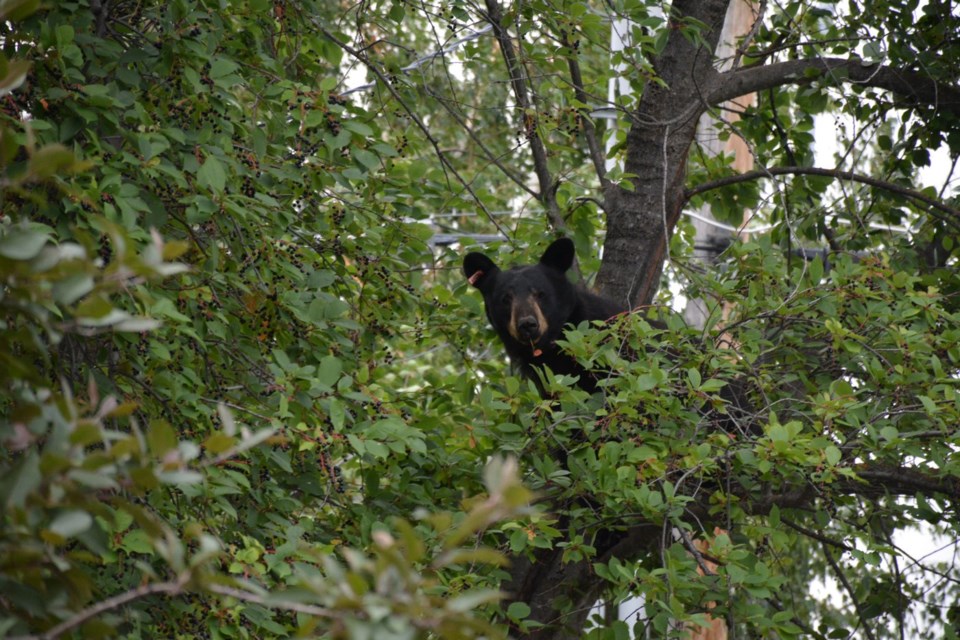Reports of bears in and around the Jasper townsite within the last week have prompted Parks Canada to issue two advisories in the interests of both public and wildlife safety.
During the last week of July, a female grizzly bear with two cubs approached picnickers at both Lake Annette and Lake Edith, eating the food left behind.
Before this, the mama had been observed in the valley bottom and around the townsite and had reportedly become very comfortable around people, said James McCormick, Jasper National Park's human-wildlife conflict and co-existence specialist.
"It just got used to people: people coming close to that bear even from inside their vehicle and watching it. I think that bear just developed a limited fear of people. It was quite comfortable with people close by."
At Lake Annette on July 24, the bear was just walking around with its cubs. When the people heard that a bear was in the area, they left their food out as they rushed to safety. The bears were able to exploit that opportunity and feed.
A few days later, Parks Canada human-wildlife conflict team members were able to capture the family in a family trap. They were able to fit the mother with a GPS collar before relocating the family to a southern area of the park the next day.
Now the concern is focused on food conditioning. Even though the picnic incident was the first instance of those bears obtaining human food, they will likely continue to seek it out because it is a high-energy food source that comes with potentially increased risks for human safety.
Nobody wants that to happen, especially since they were so difficult to move.
The possibility, however, remains real. The bear family is being monitored daily and it has been sighted along the Icefields Parkway (Highway 93N) near the boundary between Jasper and Banff national parks. Last Friday, Parks issued an advisory asking motorists to continue moving and not to stop to view them in order to prevent further habituation.
Meanwhile, back in the townsite, black bears have become a commoner sight. With August comes the ready availability of food found on many homeowners' ornamental non-native trees.
"It's fruit tree season, and from the trees I've seen around town, it looks like a very productive year," McCormick said.
The unofficial season could last as long as two months, starting with the early berries on mayday, chokecherry and pin cherry trees, extending on with apples and crabapples, and even continuing with mountain ash berries.
Some residents have confirmed that bears in their yards were previously unheard of. That is until last year when they appeared and reappeared several times over last summer. It is likely that those bears remembered where they visited, because bears have already visited those yards within the last week and a half.
Once a bear’s food-seeking behaviour becomes established, it will keep returning unless the food source is removed.
That is why Park Canada is encouraging homeowners to take further measures. It suggests picking the fruit entirely, installing barriers, or removing the trees.
"While we have fruit trees in town, I think they will continue to be an attractant for bears, and we will have a next to impossible time of actually keeping bears out of town when they know they can get that food reward," McCormick said.
Along with the Municipality of Jasper, Parks Canada offers a program that can help some homeowners remove their fruit trees. People are asked to call a human-wildlife coexistence specialist at 780-852-8118.
Beyond that, everyone is asked to report bears in town by calling Jasper Dispatch immediately at 780-852-6155. The minimum safe distance from any bear is 100 metres.



